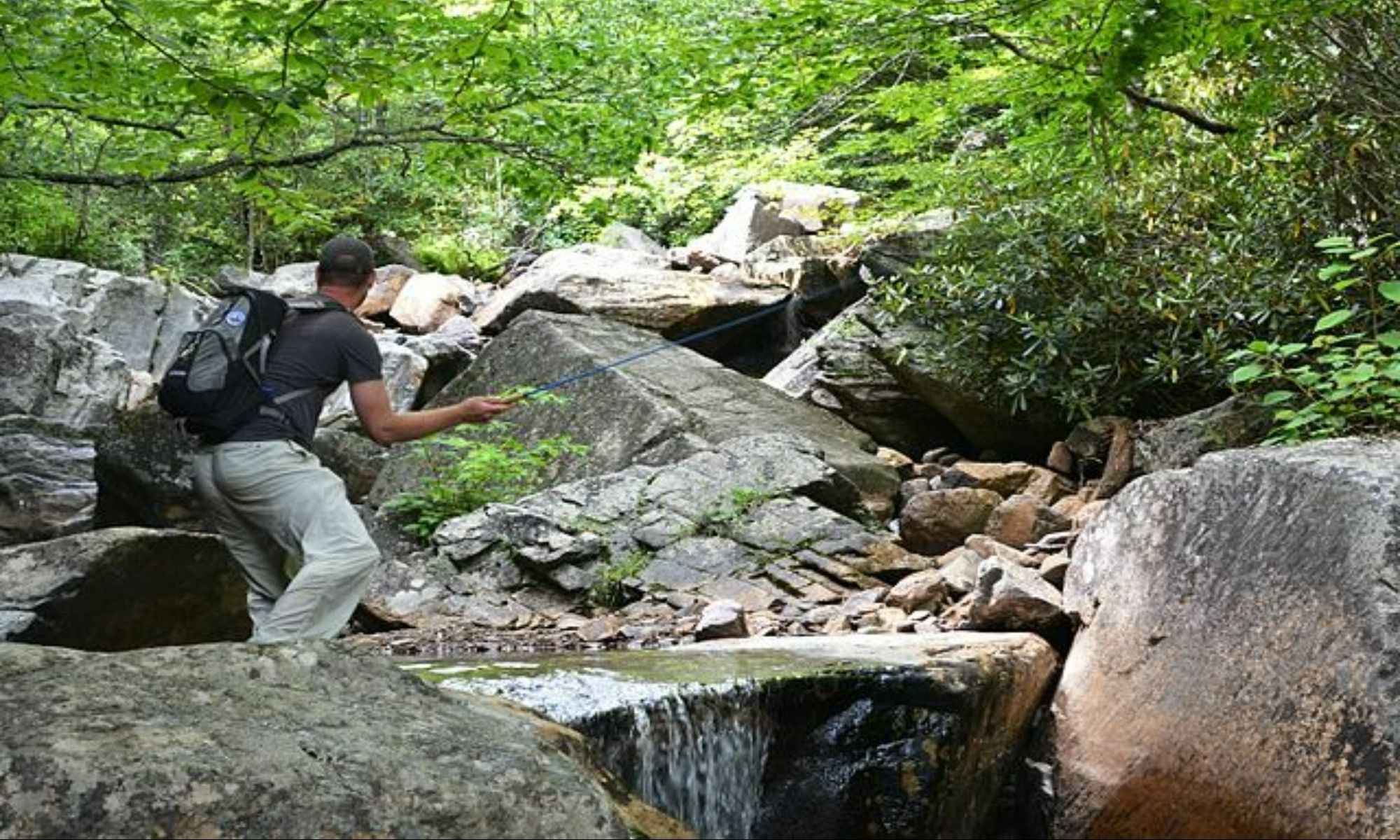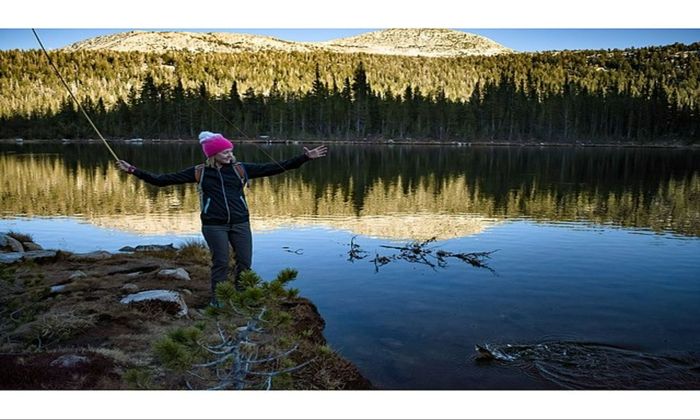Why Tenkara Fishing is Good During the Winter Season
Learn about tenkara fly fishing in the winter and see why it's worth trying.

Though wintertime usually means hibernation for fly fishing anglers, tenkara presents a ton of advantages for those with fly tying vices. Fly fishing isn’t typically done in the winter because ice can pose problems for fly rods, lines, and reels. This is where tenkara rods shine because they are designed and suited for icy conditions. Winter tenkara fishing can be a great opportunity to have fun and challenge yourself. It gives you a chance to veer away from traditional fly fishing or simple fly fishing. Here are what to expect and some tips that will make your next winter fly fishing experience more enjoyable and successful:
Why Fly Fish in the Winter
Contrary to popular belief, winter is a fantastic time to fly fish. Most anglers sit the season out, but targets like trout continue to do what they do, albeit more slowly and methodically. This means there are still fish to be caught, but fewer anglers are to compete with. Angling in the winter could be the perfect time to appreciate your surroundings and hone your skills.
One of the amazing things about tenkara fishing is that you won’t have to deal with your guides and lines freezing. This is because tenkara rods use a fixed, level line that is only adhered to at the tip. Because of this, there are no guides or reels for ice to build upon. The rods also offer more control to anglers because of that feature. If an angler finds themselves in mountain streams or a blue river (like the Colorado River), which are prime places to use their fly rod, fly line, and dry fly, a tenkara line might just help them get their next prized catch of rainbow trout or other species popularly caught with a fly.

Do Your Research

Before setting out to fly fishing in the winter, setting realistic expectations is important. Still, be optimistic but don’t expect to reel in dozens of fish. Celebrate after you hook one or two of your targets.
The cold is the biggest obstacle you’ll face if you go out fishing in the winter. Make sure you have the right gear for both yourself and the fish. Choosing the day you go out can make or break your session, so remember to check for weather updates and the local fishing report of the place you're going to. Try setting out in warm afternoons because fish will likely move and feed more.
It's a good idea to check for water flows, which can be easily found online. You will see measurements in cubic feet per second or ‘CFS.’ Look out for spikes that will indicate significant changes in water levels. This is useful because fish can be put off or spooked in areas with a drastic change in water flow. Fish in the winter are focused on finding a new holding place and conserving their energy, so if you see a steady CFS in a particular body of water, then you’re good to go.
It also goes without saying to check for local winter fishing regulations as some locations may not allow you to fish in local waterways because they’re closed during that time. Some may also impose catch and keep limitations.
Prep Up
You should dress warm and layer up during the winter. It’s better to have too many layers than risk getting sick or uncomfortable because you don’t have enough clothes. If you’re running hot, you can strip off a layer.
It’s a good idea to pack snacks whenever you’re fishing because it is a sport or activity that requires patience. Especially in the cold season, packing warm fluids - whether it be coffee, tea, hot chocolate, or soup - will fill you up and warm you up.

Don’t forget to wear your winter gloves. Tenkara anglers know that having warm, dry hands when winter fishing offers a great advantage. Cold, wet hands make it difficult for you to get a good grip on anything, and we all know angling requires a certain amount of skill. Not having gloves on can also risk your hands getting frostbitten. The simplicity and effectiveness of a tenkara rod and cast won’t be impeded by you wearing gloves because it has no reel or line to strip.
Even if you don’t plan to get in the water, it’s still a good idea to bring your wading boots just in case. They provide another layer of protection from the cold and from getting wet. Opt for a pair with studded soles to have more traction and stability.
Familiarize yourself with the terrain, especially if the area you're angling at is icy. Ice can present dangerous obstacles and conditions, so knowing what you’re working with is good.
Tenkara Fishing Techniques
You might get lucky with a hatch when you fly fishing in the winter. You can pack the right flies, such as small dry flies, nymphs, tenkara flies, and streamers.
The way to go when you’re tenkara fishing is slow and systematic. Your main winter targets (like trout) tend to be jumpier when cold. To compensate for the lack of forage, fish will feed differently, changing their holding patterns to save energy.
You would want to use a heavier fly and search through slow deep pockets of water when fishing low. Your fly should be hitting the bottom and maintaining contact, which you will feel if you are feeling bumps and getting small snags. If you’re fishing high, choose small and dark flies. Tease or let the fly dance just under the surface of the riffles and keep your line off the water.
Identifying strikes in the winter can be difficult because fish tend to be less aggressive. If you pay close attention and keep your line tight, you can detect strikes better. Even the subtlest movement could already be a hook. Your hook set doesn’t have to be too sturdy either because just a simple flick of the wrist can make you see if it’s pulled tight or not.
Tenkara fly fishing in the winter can be fun and challenging to try next time you want to have a thrilling yet isolated experience. Remember to prioritize safety before anything else and bring someone who shares the same eagerness for fly fishing no matter what season.




